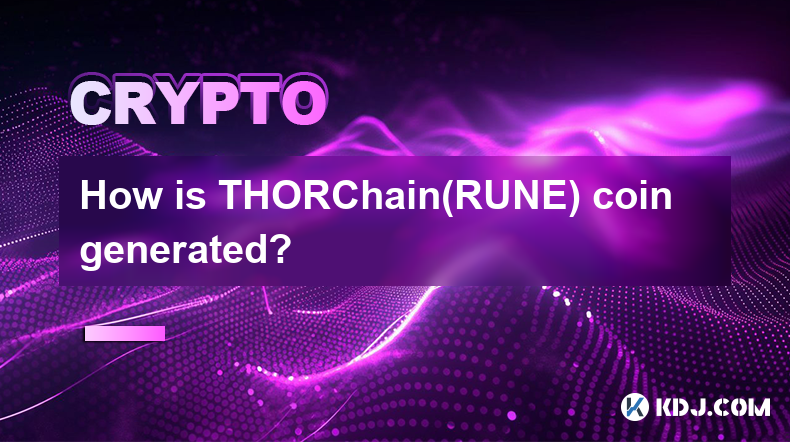-
 Bitcoin
Bitcoin $94,583.7736
-1.07% -
 Ethereum
Ethereum $1,818.9037
-0.64% -
 Tether USDt
Tether USDt $1.0000
-0.02% -
 XRP
XRP $2.1537
-0.93% -
 BNB
BNB $599.4781
1.78% -
 Solana
Solana $146.8762
0.32% -
 USDC
USDC $0.9999
-0.01% -
 Dogecoin
Dogecoin $0.1719
-0.30% -
 Cardano
Cardano $0.6677
-2.65% -
 TRON
TRON $0.2486
0.23% -
 Sui
Sui $3.4640
5.67% -
 Chainlink
Chainlink $13.7327
-2.06% -
 Avalanche
Avalanche $19.7020
-1.42% -
 Stellar
Stellar $0.2612
-2.07% -
 UNUS SED LEO
UNUS SED LEO $8.6594
-4.25% -
 Shiba Inu
Shiba Inu $0.0...01282
0.69% -
 Toncoin
Toncoin $2.9868
-2.26% -
 Hedera
Hedera $0.1752
-1.10% -
 Bitcoin Cash
Bitcoin Cash $355.1956
-0.22% -
 Hyperliquid
Hyperliquid $20.2485
-0.62% -
 Litecoin
Litecoin $85.7355
-0.81% -
 Polkadot
Polkadot $3.9582
0.41% -
 Dai
Dai $1.0002
0.01% -
 Monero
Monero $278.7119
1.35% -
 Bitget Token
Bitget Token $4.3009
-1.08% -
 Ethena USDe
Ethena USDe $1.0004
0.00% -
 Pi
Pi $0.5917
-0.25% -
 Pepe
Pepe $0.0...07981
-1.17% -
 Bittensor
Bittensor $373.9157
8.79% -
 Aptos
Aptos $5.0658
-1.05%
How is THORChain(RUNE) coin generated?
RUNE, the native token of THORChain, is generated through staking rewards, liquidity pool participation, and the protocol treasury.
Dec 07, 2024 at 06:48 pm

How is THORChain (RUNE) Coin Generated?
THORChain is a decentralized liquidity network that enables the trading of native assets across different blockchains. Its native token, RUNE, plays a crucial role in the network's operations, governance, and security. This comprehensive guide delves into the multifaceted process of RUNE coin generation, exploring its mechanics and significance within the THORChain ecosystem.
1. Blockchain Technology and Native Assets
Blockchain technology underpins the decentralized architecture of THORChain. It consists of a distributed ledger system that records transactions immutably and transparently. Each blockchain hosts a unique set of native assets, such as Bitcoin (BTC) on the Bitcoin blockchain or Ethereum (ETH) on the Ethereum blockchain. These native assets represent value within their respective ecosystems.
2. Cross-Chain Liquidity and Native Asset Trading
THORChain distinguishes itself by facilitating cross-chain liquidity and enabling the trading of native assets across different blockchains. This groundbreaking functionality unlocks the potential for seamless asset exchange without the need for intermediaries or the limitations imposed by centralized exchanges.
3. THORChain Nodes and the Consensus Mechanism
The THORChain network is driven by a network of nodes, which are computers responsible for maintaining the blockchain, processing transactions, and facilitating liquidity provision. These nodes operate in a decentralized manner, adhering to the Proof of Stake (PoS) consensus mechanism.
4. Staking RUNE for Reward Generation
RUNE holders have the opportunity to participate in network governance and earn rewards by staking their RUNE tokens. Staking involves locking RUNE tokens within a node, essentially delegating voting power to that node. In return for this crucial support, stakers are rewarded with newly minted RUNE tokens.
5. Liquidity Pools and Yield Farming
Liquidity pools are essential to the operation of THORChain. They are comprised of paired assets, such as BTC-ETH or ETH-BNB, that provide the liquidity necessary for trading operations. Users can participate in yield farming by providing liquidity to these pools, earning rewards in the form of transaction fees and incentivized RUNE tokens.
6. Protocol Governance through RUNE
RUNE holders play a vital role in the governance of the THORChain network. The "Treasury" is a decentralized autonomous organization (DAO) where RUNE holders have the power to propose and vote on changes to the protocol. This democratic process ensures that the network remains responsive to the needs and desires of its community.
7. Security and RUNE's Role as Collateral
In THORChain's unique security model, RUNE acts as collateral for trading activities. When a trader initiates a cross-chain swap, a portion of their RUNE is held in a "bonding curve" contract. This mechanism helps mitigate the risk of malicious behavior and ensures the stability of the network.
8. The Supply and Distribution of RUNE
The total supply of RUNE is capped at 500 million tokens. The distribution of these tokens is structured in a thoughtful manner, with a portion reserved for node operators, liquidity providers, stakers, and the THORChain Foundation. This balanced distribution fosters the growth and sustainability of the network.
Disclaimer:info@kdj.com
The information provided is not trading advice. kdj.com does not assume any responsibility for any investments made based on the information provided in this article. Cryptocurrencies are highly volatile and it is highly recommended that you invest with caution after thorough research!
If you believe that the content used on this website infringes your copyright, please contact us immediately (info@kdj.com) and we will delete it promptly.
- Christian Thompson, Managing Director of the Sui Foundation, stated that bipartisan U.S. stablecoin legislation will be a powerful mechanism for driving capital formation and retail onboarding into Web3 ecosystems.
- 2025-05-06 00:20:12
- Robert Kiyosaki Warns of the Biggest Market Crash in History and Urges Investment in Bitcoin.
- 2025-05-06 00:20:12
- Toronto, ON – May 5 2025 @ 9 AM ET – ETHToronto and ETHWomen to Commemorate the 10-Year Anniversary of Ethereum
- 2025-05-06 00:15:12
- Bonk (BONK), the largest Solana-based dog-themed meme coin, is the third-fastest-growing crypto today
- 2025-05-06 00:15:12
- TAO Price Prepares for a Supply Shock — What Happens When the Bittensor Halvening Hits?
- 2025-05-06 00:10:11
- Cardano (ADA) Closing the Market Cap Gap With Dogecoin (DOGE)
- 2025-05-06 00:10:11
Related knowledge

BSV transaction fees suddenly increased? How to adjust the handling fee to save costs?
May 02,2025 at 06:42am
Understanding BSV Transaction FeesBSV (Bitcoin SV) aims to fulfill the original vision of Bitcoin as a peer-to-peer electronic cash system. One of the key elements in this system is the transaction fee, which compensates miners for including transactions in the blockchain. Recently, users have noticed a sudden increase in BSV transaction fees, which can...

Does BSV transaction require real-name authentication? Is anonymous trading feasible?
May 03,2025 at 03:14pm
The question of whether BSV (Bitcoin SV) transactions require real-name authentication and whether anonymous trading is feasible is a complex one, deeply intertwined with the broader dynamics of cryptocurrency regulations and blockchain technology. Let's delve into these aspects to provide a comprehensive understanding. Understanding BSV and Its Transac...

How to solve the high slippage of BSV transactions? How to choose between limit and market orders?
May 02,2025 at 09:01pm
High slippage can be a significant concern for traders dealing with Bitcoin SV (BSV) transactions. Slippage refers to the difference between the expected price of a trade and the price at which the trade is actually executed. This can occur in fast-moving markets or when there is low liquidity. To address this issue, understanding the mechanics of slipp...

What if BSV transactions are frozen? How to contact customer service to unblock the account?
May 05,2025 at 05:01am
When dealing with Bitcoin SV (BSV) transactions, encountering issues such as frozen transactions can be a stressful experience. This article will guide you through the process of understanding why BSV transactions might be frozen and how to contact customer service to unblock your account. We will cover the reasons behind frozen transactions, steps to t...

What if BSV node synchronization is slow? How to optimize local wallet performance?
May 03,2025 at 04:35pm
When dealing with BSV (Bitcoin SV) node synchronization and optimizing local wallet performance, it's crucial to understand the underlying issues and implement effective solutions. Slow synchronization and poor wallet performance can significantly hinder your experience with the BSV network. This article will delve into the reasons behind slow BSV node ...

How to check BSV transaction records? How to use the blockchain browser?
May 03,2025 at 06:50am
Checking BSV (Bitcoin SV) transaction records and using a blockchain browser are essential skills for anyone involved in the cryptocurrency space. These tools allow you to verify transactions, check wallet balances, and understand the flow of funds on the blockchain. This article will guide you through the process of checking BSV transaction records and...

BSV transaction fees suddenly increased? How to adjust the handling fee to save costs?
May 02,2025 at 06:42am
Understanding BSV Transaction FeesBSV (Bitcoin SV) aims to fulfill the original vision of Bitcoin as a peer-to-peer electronic cash system. One of the key elements in this system is the transaction fee, which compensates miners for including transactions in the blockchain. Recently, users have noticed a sudden increase in BSV transaction fees, which can...

Does BSV transaction require real-name authentication? Is anonymous trading feasible?
May 03,2025 at 03:14pm
The question of whether BSV (Bitcoin SV) transactions require real-name authentication and whether anonymous trading is feasible is a complex one, deeply intertwined with the broader dynamics of cryptocurrency regulations and blockchain technology. Let's delve into these aspects to provide a comprehensive understanding. Understanding BSV and Its Transac...

How to solve the high slippage of BSV transactions? How to choose between limit and market orders?
May 02,2025 at 09:01pm
High slippage can be a significant concern for traders dealing with Bitcoin SV (BSV) transactions. Slippage refers to the difference between the expected price of a trade and the price at which the trade is actually executed. This can occur in fast-moving markets or when there is low liquidity. To address this issue, understanding the mechanics of slipp...

What if BSV transactions are frozen? How to contact customer service to unblock the account?
May 05,2025 at 05:01am
When dealing with Bitcoin SV (BSV) transactions, encountering issues such as frozen transactions can be a stressful experience. This article will guide you through the process of understanding why BSV transactions might be frozen and how to contact customer service to unblock your account. We will cover the reasons behind frozen transactions, steps to t...

What if BSV node synchronization is slow? How to optimize local wallet performance?
May 03,2025 at 04:35pm
When dealing with BSV (Bitcoin SV) node synchronization and optimizing local wallet performance, it's crucial to understand the underlying issues and implement effective solutions. Slow synchronization and poor wallet performance can significantly hinder your experience with the BSV network. This article will delve into the reasons behind slow BSV node ...

How to check BSV transaction records? How to use the blockchain browser?
May 03,2025 at 06:50am
Checking BSV (Bitcoin SV) transaction records and using a blockchain browser are essential skills for anyone involved in the cryptocurrency space. These tools allow you to verify transactions, check wallet balances, and understand the flow of funds on the blockchain. This article will guide you through the process of checking BSV transaction records and...
See all articles




















































































